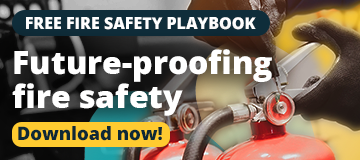
Pubs, pitches and paydays: Why sport is in the DNA of the trades
There’s something unmistakably British about finishing a long week on the tools and heading off to the football, or down to the bookies, or meeting up for a Saturday amateur league rugby match. For generations, tradespeople and sport have moved together in tandem, two pillars of working, class identity, community, and culture. This isn’t about athleticism or fitness. It’s not about the stereotype of big blokes in hi-vis kicking a ball. It’s deeper than that. This is tribal. It’s ritual. And it’s very, very real.
If you’ve ever stood in the stands at a lower league football game, or on the touchline of an amateur rugby pitch, you’ll know exactly what I mean. The voices are the same ones you hear on scaffolds and in canteens. The banter doesn’t change much, whether it’s about boilers or back fours. It’s a culture that’s grown up with shared values, hard graft, loyalty, community, and the ability to get stuck in.
A history built on grit
In the 1970s and 80s, towns across the UK ran on trades. Miners, builders, sparkies, chippies, these weren’t just jobs, they were identities. And when Saturday rolled around, the rituals began. Pick up your wage packet, head to the pub, then off to the match or the racecourse. That wasn’t just leisure; it was belonging.
Football clubs like Burnley, Preston, and Sunderland weren’t just professional outfits, they were extensions of the local workforce. Players and fans came from the same pits and plants. In Wales, rugby was practically a second religion in mining towns. As one former fitter from Rhondda told me, "We worked side by side, then played side by side. The pitch was just a cleaner site." - I loved that and it stuck with me.
Horse racing, too, had its roots entangled with the trades. Market towns, where racecourses flourished, were often serviced by tradespeople who built the very stands they cheered from. Betting wasn’t just about winning, it was about the theatre of hope and risk, something anyone who's reading this and worked self-employed knows all too well.
Not about physique, about patterns
Let’s be clear, this isn’t about strength or build. This isn’t a blog about how plastering makes you a better prop forward. What binds trades and sport isn’t the physicality, it’s the sociology. The structure of the workday, the sense of team on a job, the shared jokes in the van, it mirrors everything about being part of a football team or a rugby side.
And then there’s tribalism. Tradespeople know all about loyalty. Whether it’s to a club, a firm, a supplier or your Friday night five-a-side team, the sense of allegiance runs deep. It’s in the shirts worn to work, the nicknames shouted across jobs, the pub debates that start at 6pm and end well after closing.
Passed down, picked up
You don’t need spreadsheets to see the trend, it’s generational. Grandad was a plumber and played Sunday league. Dad was a tiler and captained the rugby thirds. Now the youngest’s laying bricks by day and banging in goals at weekends. There’s a rhythm to it. A cultural loop.
It’s visible in the amateur leagues. Across county FA leagues, regional rugby unions, and darts nights in backroom pubs, tradespeople dominate the rosters. Not because they’re fitter, but because they still value the community and structure that sport offers. It fills a social need, just like work crews do. You clock off, you train. You pay your subs, you turn up.
And it goes further. Many UK professionals in sport started off on the tools. Phil Taylor was fitting toilets and doing metalwork before becoming a darts legend. Peter Wright, builder turned world champ. Reg Harris was a mechanic before cycling his way into history and Lee Gregory was a sparkie before banging them in at Mansfield, Millwall, Stoke and Sheffield Wednesday.
Where trades go, sport follows
In regions where trades remain strong, local and part of the community, sport thrives. Northern towns like Burnley, Middlesbrough, and Hull still carry that dual identity, workforce and club intertwined. In the Welsh valleys, rugby clubs double as social centres, job boards, and unofficial mental health clinics. In areas with thriving construction or mechanical industries, you’ll still find some of the most fiercely contested amateur leagues.
A part-time club manager and customer of ours in Yorkshire told me, "Half our team are on the tools. The rest used to be. We’ve got plumbers passing to plasterers, sparkies marking joiners, it’s like a building site with shin pads on a Sunday."
That shared identity goes both ways. Sport gives tradespeople something vital, release, purpose, camaraderie. It’s not just a match. It’s a place to be seen, to belong. And if the game goes well, maybe bragging rights on Monday.
And oh, the bragging rights. If you’ve never been on site on a Monday after your team’s pulled off a win, or worse, fluffed it in the last minute, you’re missing one of the greatest unscripted performances known to man. The verbal jousting is next level. It’s Shakespeare with a Stanley knife. Years of site banter, terrace chants, and pub-side put-downs have been honed into a fine art. You’ve got sparkies quoting match stats like gospel, painters mimicking managers in post-match interviews, and someone inevitably turning up in the rival shirt just to wind you up. It’s all good sport, unless you’re on the losing end. Then it’s character-building. Supposedly.
Why does this matter more now
In a world that’s rapidly digitising, where fewer people enter trades and more are glued to screens than scorelines, this link is a lifeline. It’s culture. And culture matters. Because when you lose that, you don’t just lose players. You lose cohesion.
There’s a quote every football supporter knows and lives by: "You don’t support the team because they win. You support them because they’re yours." Same goes for your workmates. Your trade. Your corner of the world. Your belonging.
If we want to keep the soul of sport alive and keep trades attractive for the next generation, we’ve got to talk about these links. We’ve got to celebrate them. Because for many, the van doesn’t just take them to site. It takes them to the match, the pitch, the pub quiz team. And that’s where the real stories live and thrive.
So next time someone asks why so many tradespeople love sport, tell them it’s because they’re part of the same team. Different kit. Same game.


.png)